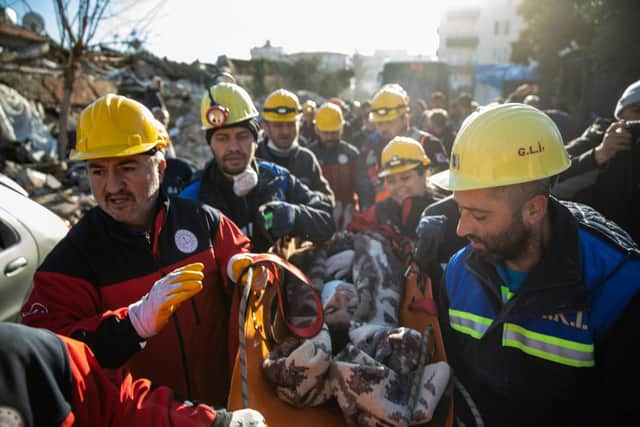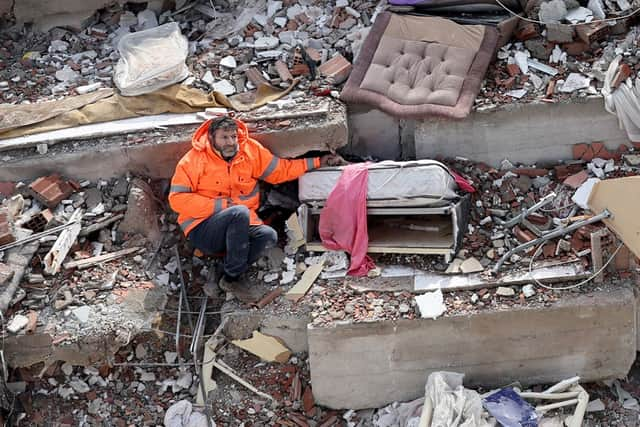Turkey-Syria earthquakes: still hope for survivors despite time running out, rescue expert says
and live on Freeview channel 276
A veteran disaster rescue worker says the race to save trapped victims from the rubble of Turkey and Syria’s quake-hit cities is not over yet, but the window to find survivors is rapidly narrowing.
More than 16,000 people have been reported dead, after the region was struck by two massive earthquakes on Monday (6 February), causing thousands of buildings to collapse. The World Health Organisation (WHO) has warned that number could still climb significantly, and as many as 23 million people could be affected in some way across the two countries.
Advertisement
Hide AdAdvertisement
Hide AdSupport from the global community has been flooding in, with teams from nearly 30 different countries en route to Turkey and Syria to assist in rescue, recovery, and aid operations. The United Nations was also “exploring all avenues” to get supplies to rebel-held north-western Syria, where millions live in extreme poverty and rely on humanitarian aid to survive.
International Rescue Corps operational director Rob Barrie said efforts to find and extricate victims after a disaster like this would continue for some time - likely a matter of weeks. “The first 24 hours are vital, but rescue work will continue as long as needed,” he told NationalWorld.
Barrie assisted with rescue efforts in Turkey after its deadly 1999 earthquakes. And two days on from the earthquakes was not too late to find more survivors, he said.


“How long’s a piece of string? In India, we found a child trapped in an area the size of a coffin after four days,” he said. “But after 24 hours, people usually start to slip away.” Barrie said children tend to cope better with being trapped than many adults, and rescuers would often find very young children still alive days after a disaster.
Advertisement
Hide AdAdvertisement
Hide AdWHO’s regional director for Europe Dr Hans Kluge told BBC Radio 4’s Today programme that just 22% of people trapped in rubble survive 72 hours after an earthquake, which later goes down to 6%. After 24 hours, 74% of people survive.
“Every minute counts now because the window to save lives is fast running out. Everyone is working flat out to find and rescue any survivors,” he said.
Temperatures have continued to drop across south-east Turkey and Syria, making time of the essence, with overnight averages of -7C expected in Gaziantep for the rest of the week. It would likely be a harrowing experience for rescue workers, Barrie said, particularly as the number of survivors they found in collapsed buildings started to fall.


Advertisement
Hide AdAdvertisement
Hide Ad“It’s very difficult work. It’s like soldiers in Afghanistan… It’s what they see there, and what they bring home with them,” he explained.” Overseas helpers would need ongoing support and counselling when they returned home, he said.
“People in the affected areas would also need “all the support they can get”, he said. The Turkish community had praised the reaction of people living in the UK, who had donated hundreds of boxes of humanitarian aid in the days since the earthquakes.
Barrie said one of the best ways to help now would be to donate money directly to charities working on the scene, as the boxes of goods could take some time to arrive. “Money can be used on site immediately,” he explained.
Comment Guidelines
National World encourages reader discussion on our stories. User feedback, insights and back-and-forth exchanges add a rich layer of context to reporting. Please review our Community Guidelines before commenting.
